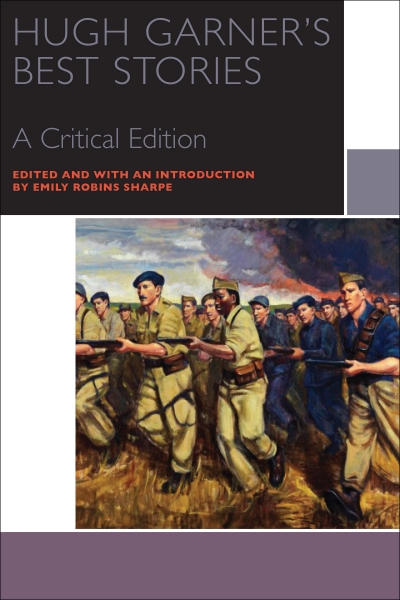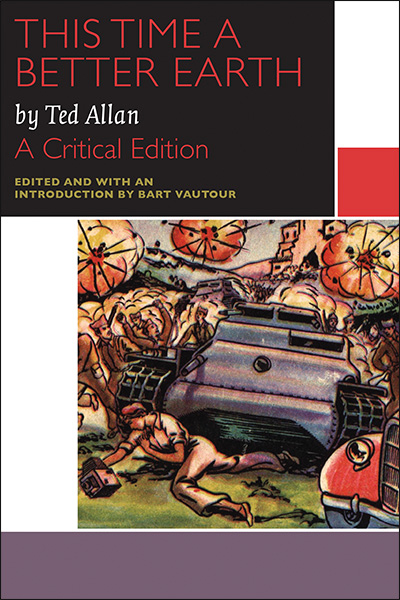We are excited to announce our print series, Canada and the Spanish Civil War. It is a sub-series of the University of Ottawa Press's Canadian Literature Collection. The sub-series is comprised of texts in which the Spanish Civil War features prominently.

by Hugh Garner,
edited by Emily Robins-Sharpe
May 2015
Hugh Garner’s Best Stories received the Governor General’s Literary Award for English-language fiction in 1963. The collection consists of twenty-four stories composed between the late 1930s and the early 1960s and reflects the immense flux of the mid-century, from the Great Depression to the Spanish Civil War, World War II, the Civil Rights movement, and second-wave feminism. Garner takes on issues ranging from anglophone–francophone conflict in Canada to racism in the American South, from the disenfranchisement of First Nations people to the mistreatment of the mentally disabled. Best Stories is not only notable for the devastating precision of its prose, but also for its contribution to the Spanish Civil War literary canon. This new edition brings short fiction by Garner into conversation with the wider canon of Canadian and transnational leftist and proletarian literature.
by Ted Allan, edited by Bart Vautour
January 2015
A young Canadian marches over the Pyrenees and enters into history by joining the International Brigades—men and women from around the world who volunteered to fight against fascism in the Spanish Civil War. This new edition of Ted Allan’s novel, This Time a Better Earth, reintroduces readers to the electrifying milieu of the Spanish Civil War and Madrid, which for a short time in the 1930s became the epicentre of a global struggle between democracy and fascism. This Time a Better Earth, first published in 1939, tells the story of Canadian Bob Curtis from the time of his arrival in Spain and the idealism and trials of the international volunteers. Allan’s novel achieves the distinction of being both a work of considerable literary and historical significance and a real page-turner.
by Charles Yale Harrison, edited by Emily Robins Sharpe and Bart Vautour
May 2016
See a variant ending from a manuscript of Meet Me on the Barricades.
Out of print since its single publication run in 1938, our critical edition recovers Harrison's important commentary on the heated "culture wars" of the 1930s and the Spanish Civil War. With an original critical introduction and extensive textual and editorial notes, our edition draws on original archival research to situate the novel within the modernist and leftist North American canons. Meet Me on the Barricades is a densely allusive text that layers global politics, revolutionary theory, classical music, literary theory, world history, and anti-Stalinism, as well as emergent biological discourses about sex. It recounts a few days in the life of P. Herbert Simpson, a middle-aged, weak-hearted oboist with the New York Symphony Orchestra and leftist fellow traveller. Simpson is also subject to wild hallucinations that are sometimes daydreams, sometimes drunken delirium, and, sometimes intricate dreams while asleep. He imagines escaping his unrewarding marriage with a prudish, domineering wife into a passionate fantasy of a Russian girlfriend, and escaping his day job in the symphony to fight on the front lines of the Spanish Civil War.


